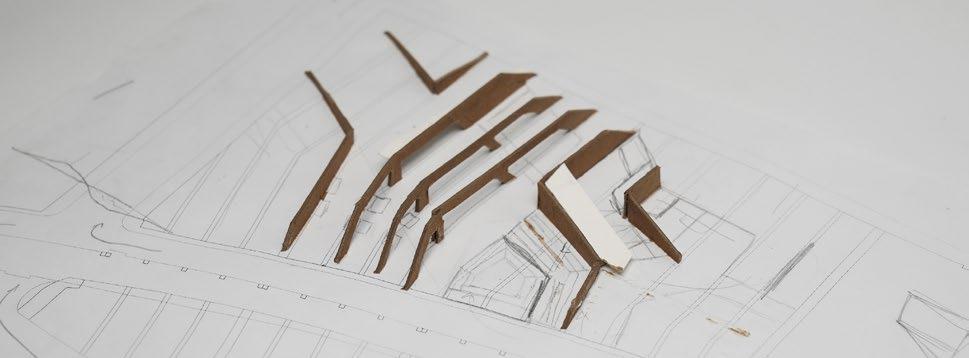
1 minute read
POR-OUSE
Clay bricks are one of the oldest building materials used to make highly energy efficient structures due to their heat resistance and non permeability towards pressure and frost.
In this research study - the brick’s form, function and production are all challenged to reimagine traditional masonry construction. The use of robotic 3d printing exploits the fluidity of clay to produce complex geometries serving new programmatic functions to a core building component.
Advertisement
Why Clay Bricks
Green state - Earthen clay is malleable and can be shaped into a variety of forms using molds, extruders
When baked - Its solid, dense nature provide strength, durabiity & sound insulation without warping during extreme climate.
By adapting these properties for robotic extrusions: new more functional forms can be generated.
Traditional Extrusion
Precise, standardised bricks are extruded at a high production rate making it highly efficeint for large scale construction

Limited in form, orthogonal shapes produced as a constraint of the large format extrusion process
Robotic Extrusion
Controlled clay extrusion accross all 3 axis : enabling complex geometries to be optimised for material conservation and efficient production.

Limited printing speed due to geometric complexities, extrusion flow & drying rate

Direct path for Light & Air
Controlled movement of Light & air
WALL PROGRAM - THERMAL REGULATOR
Developing a new form in order to re-program the wall as a thermal mass and air circulation device. Through a mixture of porousity and solid infill the walls exchange heat with air that travels through the pores. In extreme hot climates this wall system absorbs heat during day and disipates heat at night.
BRICK MASSING
EXTRACTING SURFACE MATERIAL THICKNESS
Base Geometry


Porous Brick Solid




GLAZING TEST - VARIABLE SATURATION & LAYERS




VARIABLE WALL THICKNESS
OUTER - 40mm CENTRAL - 20mm INNER - 60mm
MORTAR JOINT
CLAY CORE
POROUS CAVITIES
LOCAL SAND INFILL
Poruous cavities open into the interior acting as a vent to bring in air
Deep footing into the ground promotes geothermal heating and cooling within desert condtions
Academic Project : Fall 2021
Type : Live - work Residences
Location : Bedford-Stuyvesant, NY
Partner : Abby Lo Presti
Critic: Thomas Hanrahan



